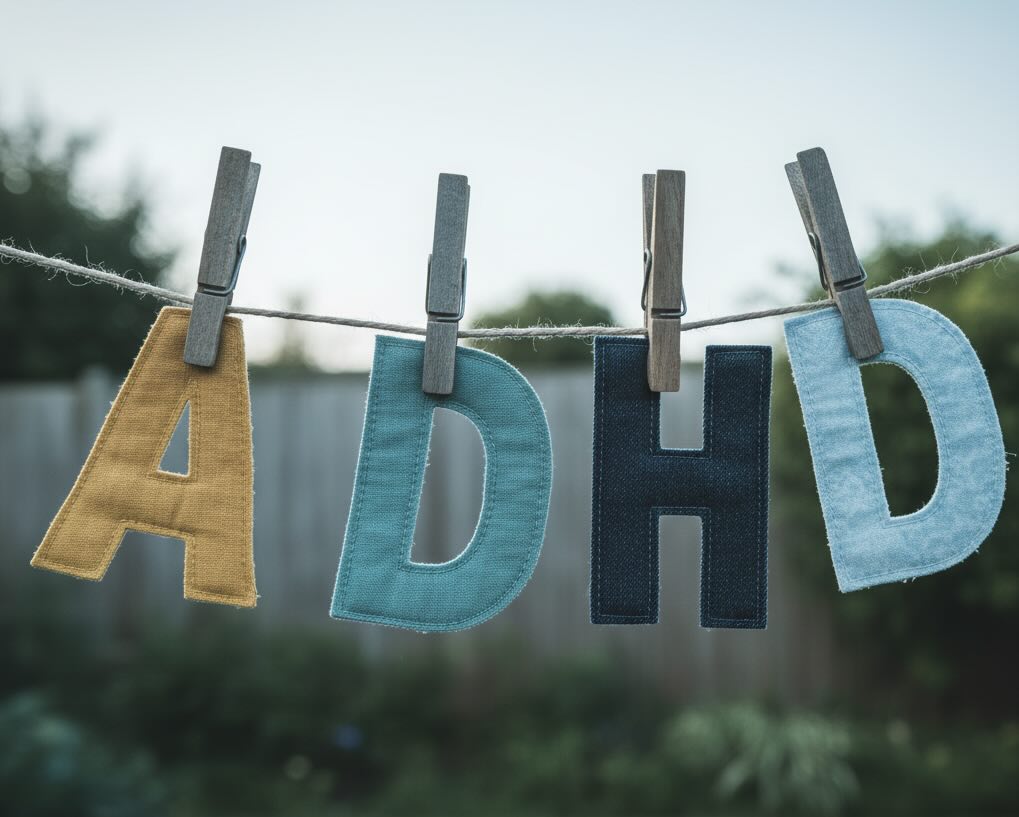What is Binge Eating Disorder?
Binge Eating Disorder is an eating disorder where a person has repeated episodes of eating a much larger amount of food than most people would eat under similar circumstances, while feeling unable to stop or control what they’re eating. These episodes are highly distressing and usually happen at least once a week for several months.
Unlike bulimia nervosa, there are no regular compensatory behaviours after binges such as self-induced vomiting, misuse of laxatives, or extreme exercise. People with BED can be in a higher, lower, or “average” weight range, although the condition is often associated with overweight or obesity and with physical health conditions such as type 2 diabetes and high blood pressure.
BED affects how you think and feel about food, your body and yourself. It often co-occurs with depression, anxiety, substance use, ADHD and other mental health difficulties, which may need to be addressed alongside the eating disorder.
Recovery is possible. Many people improve significantly with a combination of psychological therapy, support for regular eating and, when appropriate, medication and medical monitoring.
Binge Eating Disorder Symptoms
Everyone’s experience is different, but some features commonly show up in BED.
Core symptoms
Key features include:
- Repeated episodes of eating large amounts of food in a short time (for example, over one evening or in a 1–2 hour period), with a sense of loss of control over eating
- Binge episodes are often associated with several of the following:
- Eating much more quickly than usual
- Eating until feeling uncomfortably or painfully full
- Eating large amounts when not physically hungry
- Eating alone or secretly because of embarrassment about how much you’re eating
- Feeling disgusted, low or very guilty afterwards
- Significant distress about binge eating
- Binges typically occur at least once a week over several months
- There are no regular purging or compensatory behaviours (such as vomiting, laxatives, or extreme exercise) aimed at “undoing” the binge.
Physical symptoms
Because BED doesn’t always change someone’s weight in obvious ways, physical signs can be missed. Possible effects include:
- Fluctuations in weight over time (up or down)
- Bloating, abdominal pain, reflux, constipation or diarrhoea
- Feeling sluggish, “foggy”, or very sleepy after large meals
- Worsening or development of weight-related health problems, such as type 2 diabetes, high blood pressure, high cholesterol or joint pain
- Breathlessness on exertion, low energy, or difficulty with day-to-day physical tasks
- Disturbed sleep (including insomnia or oversleeping).
How it may feel day-to-day
Emotionally and psychologically, BED might involve:
- Feeling “possessed by food” at times, or preoccupied with thinking about what you will eat next
- A pattern of strict dieting, food rules or skipped meals, followed by out-of-control binges
- Strong feelings of shame, disgust or hopelessness about your eating
- Hiding food, eating in secret, or minimising what you tell others you’ve eaten
- Avoiding social situations, restaurants, or gatherings involving food
- Judging your worth by your weight, shape, or eating – feeling like a “failure” when you binge.
When to seek help
Seek urgent medical or emergency help if you experience:
- Chest pain, shortness of breath, fainting or feeling like you might pass out
- Sudden confusion, severe weakness, or difficulty speaking
- Vomiting blood, severe abdominal pain, or black/bloody stools
- Thoughts of self-harm or suicide, or feeling unable to keep yourself safe.
Contact a Loffty eating disorders specialist promptly if:
- You experience regular binges and feel unable to stop, even though you want to
- Your eating patterns, weight concerns or body image are significantly affecting your mood, work, studies, relationships or physical health
- Friends, family or colleagues have expressed concern about your eating or mood
- You’re already being treated for depression, anxiety, ADHD or another condition, and you’re noticing binge eating on top of this.
How Do You Assess for Binge Eating Disorder?
Brief screening tools can help flag BED, but they’re only one part of a full assessment. Tools like the Eating Disorder Examination Questionnaire (EDE-Q), Binge Eating Scale (BES) and brief primary-care screens (e.g. SCOFF/ESP) are commonly used, but they cannot identify co-occuring conditions that may be contributing to the binge eating behaviour.
A thorough assessment usually includes several steps:
- Start with a broad multi-condition mental health assessment: A multi-condition tool, like Loffty, can explore eating difficulties alongside other issues that often occur with BED – such as depression, anxiety, trauma, ADHD, substance use, and personality or mood disorders. This helps avoid “tunnel vision” on eating alone.
- Share results with a qualified specialist: A psychiatrist, clinical psychologist, mental health nurse practitioner or eating-disorder specialist dietitian can then explore:
- The pattern, frequency, and triggers of binge episodes
- Any history of restrictive dieting, weight cycling, or past purging behaviours
- Co-occurring mental health conditions and substance use
- Current medications and physical health risks (e.g. diabetes, blood pressure, liver function)
- Medical assessment and tests: Your specialist may recommend:
- A physical examination, including blood pressure, pulse, weight and waist circumference
- Blood tests, for example: glucose/HbA1c, lipids, liver and kidney function, full blood count
- ECG if there are concerns about heart rhythm or if you’re on certain medications.
- Clarifying diagnosis and planning care: Your specialist will consider whether your current difficulties fit a BED diagnosis, another eating disorder, or a different diagnosis altogether, and work with you to plan support that matches your needs, preferences and local services.
How Do You Treat Binge Eating Disorder?
Most people with BED can be treated as outpatients, using a mix of psychological therapy, support to normalise eating, and monitoring of physical health. Some may benefit from more intensive programmes if the risk is higher or if outpatient treatment hasn’t been enough.
Lifestyle and self-care foundations
These changes don’t replace treatment, but they support recovery:
- Regular eating pattern – moving toward planned, regular meals and snacks (for example, three meals plus 2–3 snacks) to reduce cycles of restriction and rebound bingeing
- Balanced nutrition – working with a dietitian or clinician to find patterns that are realistic, flexible and not based on extreme rules
- Gentle movement – if medically safe, shifting focus from weight loss or “earning food” to movement for mood, strength and wellbeing
- Sleep and routine – aiming for consistent sleep and daily structure to reduce vulnerability to binges
- Social connection – involving at least one trusted person who can support you, attend appointments if you wish, and help you stay on track
- Coping plans for urges – developing strategies for when binge urges are strong (for example, urge surfing, delay techniques, grounding skills, and reaching out to supports)
Talk Therapy
Psychological therapy is the core treatment for BED. Research shows that several therapies can reduce binge eating and improve wellbeing, with particularly strong evidence for CBT-based approaches.
Common treatments include:
- Cognitive Behavioural Therapy (CBT / CBT-E / CBT-ED)
Structured, time-limited therapy focusing on:- Establishing regular eating
- Challenging strict rules and unhelpful beliefs about food, weight and shape
- Understanding triggers for binge eating (emotions, thoughts, situations)
- Building alternative coping strategies and relapse-prevention skills.
- Guided self-help CBT: Uses evidence-based self-help materials (often including Overcoming Binge Eating or similar) with brief support from a clinician. This can be helpful for many adults with mild to moderate BED and is recommended in several guidelines.
- Interpersonal Psychotherapy (IPT): Focuses on how relationship patterns, life changes, conflicts and grief affect mood and eating behaviours. IPT has evidence for reducing binge frequency in BED.
- Dialectical Behaviour Therapy (DBT) skills: Often used when emotion dysregulation, impulsivity, self-harm or personality difficulties are prominent. DBT skills (for distress tolerance, emotion regulation and interpersonal effectiveness) can be integrated with eating disorder work.
- Family-based or family-focused approaches: Particularly relevant for adolescents, where caregivers are supported to help their young person establish regular eating and reduce binges.
Medication
Medication is usually an add-on, not a standalone cure, and should always be prescribed and monitored by a qualified clinician who understands eating disorders.
Evidence suggests:
- Some SSRIs (antidepressants) can reduce binge frequency and treat co-occurring depression or anxiety in BED, though they are not specifically licensed for BED in many countries.
- Lisdexamfetamine (LDX) is currently the only medication specifically approved in some countries (e.g. FDA approval in the United States) for moderate to severe BED in adults, and can reduce binge episodes. It is a stimulant medication, so it requires careful monitoring of cardiovascular status, sleep, anxiety and misuse risk.
Newer weight-loss medications (such as GLP-1 receptor agonists like semaglutide) are being studied for binge eating, but they are not currently established first-line treatments for BED, and they may worsen disordered eating in some people. Decisions about any weight-loss medication should be made cautiously with an experienced clinician who considers both the physical and mental health implications.
Never start, stop or change medication without medical advice. If you have concerns about your current medication and binge eating, discuss this with your prescriber.
Other treatments and levels of care
Depending on severity and local services, options may include:
- Standard outpatient care: regular sessions with a therapist, plus medical and dietetic support
- Intensive outpatient or day programmes: several days per week of groups, supervised meals and skills training
- Inpatient or residential treatment: used when there are serious medical complications, high suicide risk, or when outpatient/day programmes have not been enough
- Peer and support groups: in-person or online groups, carer groups, and community resources can reduce isolation and provide ongoing encouragement
Binge Eating Disorder Research
Prevalence and impact
Research suggests that BED is more prevalent than anorexia nervosa or bulimia nervosa, with lifetime prevalence estimates in general-population samples around 0.6–1.8% for women and 0.3–0.7% for men, and point-prevalence around 1.5% in some analyses.
BED often begins in late adolescence or early adulthood, can be long-lasting, and is frequently associated with obesity and medical comorbidities. Many individuals also have at least one other mental health diagnosis, and overall quality of life can be significantly reduced.
Treatment evidence
Systematic reviews and meta-analyses indicate:
- CBT and guided self-help have moderate-quality evidence for reducing binge frequency and helping many people stop bingeing altogether.
- IPT, DBT-based approaches, family-based IPT and several medications (including SSRIs and lisdexamfetamine) show benefits in reducing binge eating, though evidence quality for some is lower and more research is needed.
- Combined approaches (e.g. CBT plus lisdexamfetamine) are being studied to see whether they offer advantages over therapy alone; early results show promise but also emphasise the need for careful monitoring.
Most research has focused on adults in high-income, often Western countries, with under-representation of men, gender-diverse people and many ethnic groups. Newer studies aim to address these gaps.
Books and Resources About Binge Eating Disorder
- Overcoming Binge Eating (Second Edition) – Christopher G. Fairburn. A widely used self-help book (also often used alongside therapy) that explains binge eating and provides a detailed CBT-based programme for changing eating patterns and reducing binges.




